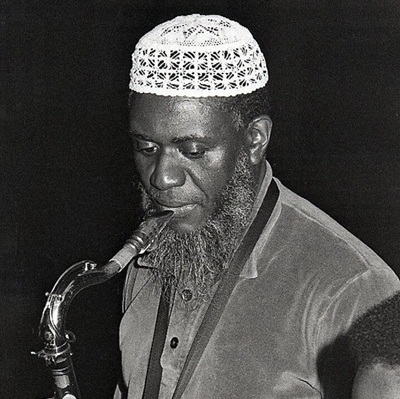I recently published an interview with John Goodman, author of Mingus Speaks, a terrific book of interviews Goodman conducted with Mingus in the early ’70’s.
The following is an interview fragment…For the complete interview, please visit this page
*
JJM He was pretty pessimistic about jazz surviving and at one time told you, “I think jazz is over man,” and blamed everyone for jazz’s decline. You wrote, “On different occasions we talked about how the music business works, and Mingus of course had strong opinions on that subject. In 1972, he said on more than one occasion that the record companies had promoted rock and roll and R&B music to such an extent that they drove jazz out. In 1974, he seemed to be changing his tune, saying that the problem really lay with the radio outlets, the media in general, finally “society.” This lack of fairness came up quite a bit during your interviews…
JG Well, you could call it lack of fairness, but you could also say that this may have been part of Mingus’s paranoia, which he possessed in spades. On the other hand, concerning the actual tenor of his remarks here, I think he’s right. There were multiple causes for the fact that jazz was in decline, and the one thing that Mingus and most jazz musicians didn’t address is the fact that the music got less and less accessible to people – it got more arcane and introverted, what some people would call more of an “art music.” But I think Mingus was right about how the recording companies and commercial and media interests pushed rock and roll and more popular music, though there’s a whole lot more to it than that.
JJM He had a real concern for where the music was going artistically, particularly the avant-garde, which he thought was phony and inauthentic – a path he felt a real musician wouldn’t pursue. It is ironic that many critics and musicians ultimately associated him with the avant-garde, which angered him…
JG He hated the term “avant-garde” and, as you can see in the book, I didn’t have much use for it either. But yes, Mingus was not really part of that free-jazz movement, although he is, in a way, an ancestor of it. His early music and some of the stuff that he did in the Jazz Workshop were the foundations for a lot of what happened later with free jazz. But I think Mingus felt that those early attempts to play true “avant-garde” music were born out of real study and serious attempts to understand modern classical music and bring some of that to jazz. But if I can interpret for him, the way it grew into a lot of shrieking and squawking became, in his eyes, sort of perverted.
JJM Concerning how a contemporary musician viewed his work as avant-garde, you wrote, “Salim Washington, jazz musician, teacher, and critic, wrote an interesting piece proposing that Mingus represented the true avant-garde spirit in jazz (as opposed to some of the noisy revolutionaries of the ’60s), that Mingus synthesized tradition and ‘self-expression’ functionally and more musically than anyone else in jazz has done.” Another writer, Alex Stewart, wrote concerning this, “Many of the techniques championed by Mingus – additive composition or layering, collective improvisation, lack of concern with playability, rich unisons – form the core of the experimental or avant-garde composer. Although Mingus often disparaged the avant-garde movement, many avant-garde musicians continue to cite Mingus as a prime influence.”
JG Yes. Alex is a friend of mine and I think he’s absolutely right to point that out. The fact is that Mingus created a very different kind of vocabulary and music from what anybody else was playing, and certainly from what followed from the free-jazz musicians. He felt he was being tarred with a brush that he didn’t approve of.
JJM The “brush” he wanted to be associated with didn’t, as he would say, “throw paint,” meaning he wasn’t the musical equivalent of an avant-garde painter like Jackson Pollock.
JG Yes, and our discussion about this went back and forth, if I remember right, with painting metaphors and led me to writing my essay in the book about Mingus and the avant-garde and some of the artistic controversy that went on during the 50’s and 60’s in particular. Mingus really was influenced by all kinds of artistic endeavors. He wrote for dance, and he wrote a very good piece for the Joffrey Ballet. He loved painting and was very much into poetry and all of the arts.














































